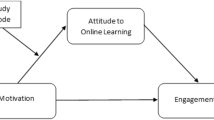Abstract
In this methodological reflection, I describe the multidisciplinary hermeneutic process of philosophizing about teacher dissatisfaction. I discuss how philosophy serves as a starting point for interpretive work based on interviews with former teachers and readings of qualitative and quantitative research on teacher attrition and dissatisfaction. The result has been a project that enabled me to offer new descriptions of phenomena and to develop concepts that can be used to interpret the moral dimensions of teacher dissatisfaction. The fact that I return to language and concepts as my research outcomes is why, despite my multidisciplinary approach, I continue to describe my work as philosophical. I suggest that philosophical enquiry pursued through empirical research has the potential to inform larger empirical studies, serve as a “sensitizing instrument” for empirical analysis, and to open discursive spaces where common understandings limit interpretive possibilities.
Similar content being viewed by others
Notes
Lisa Morehouse shared responsibility for conducting the interviews. We conducted the interviews separately. I am solely responsible for the interpretation of data.
Rosetta Marantz Cohen, a philosopher of education who conducts empirical research, pointed me in the direction of portraiture as I struggled to make sense of my methodology.
References
Brinkmann, S. (2012). Qualitative inquiry in everyday life. Los Angeles: Sage.
Campbell, E. (2008). The ethics of teaching as a moral profession. Curriculum Inquiry, 38(4), 357–385.
Dewey, J., & Tufts, J. H. (1909). Ethics. New York: Henry Holt and Company.
Dewey, J., & Tufts, J. H. (1932). Ethics (Revised ed.). In J. A. Boydston (Ed.), John Dewey: The later works, 1925–1953 (Vol. 7). Carbondale, IL: Southern Illinois University.
Dunne, J. & Hogan, P. (Eds.). (2004). Education and practice: Upholding the integrity of teaching and learning. Oxford: Blackwell Publishing.
Lawrence-Lightfoot, S., & Hoffman Davis, J. (1997). The art and science of portraiture. San Francisco: Jossey-Bass.
Lightfoot, S. L. (1983). The good high school: Portraits of character and culture. New York: Basic Books.
MacIntyre, A. (1984). After virtue (2nd ed.). Notre Dame, IN: University of Notre Dame Press.
MetLife. (2013). The MetLife survey of the American teacher: Challenges for school leadership. New York: MetLife.
O’Neill, L. (2007). Embodied hermeneutics: Gadamer meets Woolf in a room of one’s own. Educational Theory, 57(3), 325–337.
Office of Performance Evaluations. (2013). Workforce issues affecting public school teachers. Boise, ID: Office of Performance Evaluations, Idaho Legislature.
Santoro, D. A. (2011a). Good teaching in difficult times: Demoralization in the pursuit of good work. American Journal of Education, 188(1), 1–23.
Santoro, D. A. (2011b). Teaching’s conscientious objectors: Principled leavers of high-poverty schools. Teachers College Record, 113(12), 2671–2705.
Santoro, D. A. (2013). I was incredibly uneasy about the profession and what was being asked of me. Preserving integrity in teaching. Curriculum Inquiry, 43(5), 563–587.
Smeyers, P., & Verhesschen, P. (2001). Narrative analysis as philosophical research: Bridging the gap between the empirical and the conceptual. International Journal of Qualitative Studies in Education, 14(1), 71–84.
Sundsdal, E. E., & Strand, T. (2011). Reality is catching up with me: Empirical knowledge and philosophy of education. Nordic Studies in Education, 31(2), 139–148.
Walker, M. U. (1997). Picking up pieces: Lives, stories, and integrity. In D. T. Meyers (Ed.), Feminists rethink the self (pp. 62–84). Boulder, CO: Westview Press.
Walker, M. U. (1998). Moral understandings: A feminist study in ethics. New York: Routledge.
Acknowledgments
Lisa Morehouse’s friendship and integrity served as inspiration for this project. I am grateful to the following colleagues who provided feedback on drafts of this manuscript: Alice Pitt, Jeffrey Pocock, Matthew Sanger, Amy Shuffelton and Terri Wilson.
Author information
Authors and Affiliations
Corresponding author
Rights and permissions
About this article
Cite this article
Santoro, D.A. Philosophizing About Teacher Dissatisfaction: A Multidisciplinary Hermeneutic Approach. Stud Philos Educ 34, 171–180 (2015). https://doi.org/10.1007/s11217-014-9409-4
Published:
Issue Date:
DOI: https://doi.org/10.1007/s11217-014-9409-4




